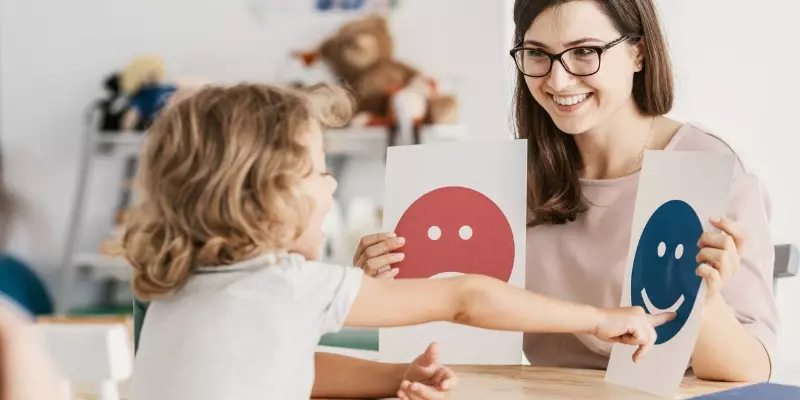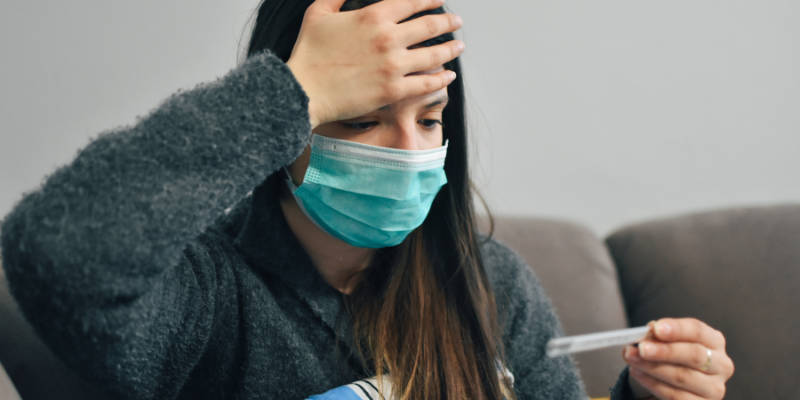
With nonstop news reports about the coronavirus and schools closing due to COVID-19, parents may be wondering about the best way to talk about it with their children. How can you bring it up without scaring your kids and making things worse?
Child and adult psychiatrist Dr. Daniel Amen, who has 4 children and 5 grandchildren, offers 8 tips on how to open up the conversation.
1. Don’t avoid the topic.
Kids have wild imaginations. If you don’t address the issue with them at all they may conjure up frightening stories in their head that can lead to excessive anxiety, panic, and looping worries.
2. Ask what they know about the coronavirus.
Finding out what they have heard about the illness is a great opportunity to address any misconceptions they may have. Check the World Health Organization’s myth busters page for common myths about COVID-19.
3. Stay calm and be reassuring.
One of the things child psychiatrists often have to teach parents is that kids pick up on more than just the words parents say. If you’re filled with anxiety and fear or compulsively using sanitizer, your kids are likely to mirror your behaviors.
4. Stick to the facts.
Make sure you know the basics about the disease so you can provide accurate information. The CDC has a great page about COVID-19 facts for discussions with kids.
5. Don’t let the news and internet do the talking for you.
In general, too much screen time is harmful to developing brains. Letting children get their information from TV news or internet sources can heighten their fears. Be sure to monitor what your kids are watching and let them know to come to you if they have questions or concerns.
6. Don’t blame others for the spread of the virus.
Whenever you blame someone else for the problems in your life, you become powerless to change anything. Blaming others is an example of an ANT (automatic negative thought) that makes you feel like you have no control over your life. And guess who’s listening? Your child. When talking to your child, don’t say that it’s someone else’s fault that the virus is spreading. Instead, focus on what you can do about it.
7. Focus on what you can do to protect yourselves.
To help kids feel empowered, emphasize that there are many things they can do to stay healthy:
- Wash hands with soap and warm water for at least 20 seconds (tell them to sing the “Happy Birthday” song twice while they wash)
- Minimize touching and hugging others (suggest giving an “air 5” instead of a “high 5”)
- Keep hands and fingers out of their nose, eyes, and mouth.
Telling them about these things is just the first step. Be sure to reinforce your child’s positive behavior by noticing when they wash their hands or give an “air 5.” Pointing out what your child is doing right is much more effective in shaping behavior than noticing the bad.
8. Tell them it’s okay to be stressed.
Let your kids know it’s normal to feel anxious or worried and that everybody feels like this from time to time. Reassure them that it should pass but also encourage them to let you know if their stress doesn’t go away or if it gets worse. In some cases, when a child experiences excessive anxiety or panic, they may benefit from professional help.
At Amen Clinics, our Child and Adult psychiatrists have helped thousands of children overcome anxiety, panic attacks, obsessive worrying, and compulsive behaviors. For more information, speak to a specialist today at 888-288-9834. If all our specialists are busy helping others, you can also schedule a time to talk.





Thank you for this article on covid 19 and children. Great information and symbolic to keep the communication waves open with loved ones. Very inspiring.
Comment by Msafiri Yoko Makembe — April 6, 2020 @ 3:00 AM
Your article covered some good basics, however, it didn’t cover how to talk to your children if you have to be in isolation apart from them. I’m on day 17 of being isolated in my own bedroom for Covid 19 symptoms. I’m supposed to be asymptomatic for 3 days before I can come out, but still coughing. I’m thankful it has been mild and that my family hasn’t caught it, but I was even in here for 2 birthdays. We used Zoom to help celebrate.
I can’t help but think of the healthcare workers who are also separated from their children in an even more obvious and dramatic way. There are a lot of them. Why write an article that assumes children are safely tucked away with parents? The ones who really need to know what to do are the ones in the thick of it.
Comment by Jennifer M — April 6, 2020 @ 4:20 AM
The last person’s paragraph was good.
My grandchildren are pretty good but I have two are in last year of high school. The boy is very quiet and our don says he is being very quiet . The girl from my daughter is completely scared she will not have a graduation or even a prom. They two are cousins but I am sure they both would be worried about there parents too. I live in another state but talk to the one girl and I believe she is more open to me but I do not get to talk to the boy as my son tries to keeP his two boys very busy they are golfers and I know they cannot play now. They were better than me at golf . So it hard on these thinkers too and tend to not talk about it .
Comment by J fox — April 6, 2020 @ 8:20 AM
As a former Licensed Marriage & Family Therapist for 38 years & now a Certified Professionaled to express themselves Life Coach, I thought the tips in the article was “spot on” for the kids, & youth, I.e.. up to pre adolescents. Talking or perhaps involvement like play acting or charades is good forms of relief or cartharsis. The same is true for adults. I agree that we adults should focus on “what do we do in the present time in light of what is happening, how to stay safe & happy”. Matured adults are even going to find someone to “blame” or target as to relieve their guilt about whom or what they think our government should do or do better to respond to the needs of the public it SERVES. Adults need to express themselves amongst one another. The REAL Truth needs to be told & NOT the fantasy or “magic/Disney World” thinking or “hunches” of untrained or unprofessional people – “stay in your lane”. Common sense & mother wit is profoundly absent & is a thing of the past. Talking with elders & soliciting how they handled things such as recessions/depressions is an invaluable resource. Getting BACK to basics like washing your hands, bathing nightly, etc is or comes from basic home training & is cyclical in nature. This was simply routine when I was raised. Helping your neighbor, visiting (by phone no less) resulted in a state of “somebody cares”, & community care, protection & a sense of “village”. To expand the African proverb: “It takes a village to raise a child” ; “It also takes a village to Provide, Protect & to serve ALL of the members of its village”!
Finally, little, few or no one is focusing on the one, true panacea – God almighty. He, the Holy Healer is omnicient, omnipresent, & omnipotent. He’s got it all. Do you know ANY, physician, epidemiologist, scientist, politician, psychiatrist etc. that does? God, this true Mega Master of healing simply ask us not to ignore or leave Him out. He will work in our behalf if we ask & give Him a High Five by giving Him credit via praise & glory to Him. Is that such a high price to pay?
God Bless & keep us all.
P. Rhonne Sanderson, Ph.D.
Comment by Rhonne Sanderson, Ph.D., LMFT, CPLC — April 15, 2020 @ 11:42 AM